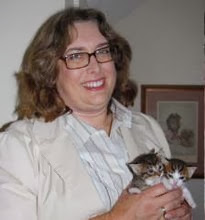 Twin Cities Pet Fix Program Expanding!
Twin Cities Pet Fix Program Expanding!After years in operation, Minnesota's largest low-cost spay/neuter program is expanding. Historically, certificates for low-costs and, based on available funding, sometimes no-cost, spay/neuter certificates have been available at the Animal Ark Thrift Store and the Animal Ark Shelter. Within the next month, changes to the program will allow for increased certificate distribution at additional locations, including animal control centers, animal shelters and animal rescue organizations. If a nonprofit animal welfare organization or an animal control center is interested in distributing Pet Fix spay/neuter certificates, all they have to do is contact Animal Ark at (651) 772-8983 Ext. 51.
 Wildcat Wednesdays Expanding!
Wildcat Wednesdays Expanding!Three years ago, Animal Ark began piloting a program with St. Paul Animal Control to help sterilize, vaccinate and release free-roaming cats in that city. Gradually, over the following years, the program was expanded and refined. In July of 2010, the program is now officially available to anyone seeking services for a free-roaming (i.e. not owned) feline. Each Wednesday, Animal Ark's mobile surgical hospital called "The Neuter Commuter" performs free surgeries, vaccinations and other veterinary services for area feral cats. More information about the program is available by downloading this brochure.
Animal Ark's Endowment Fund Established
More than 30 years ago, Animal Ark was built by a group of compassionate animal lovers in a grass-roots effort to establish Minnesota's first no kill animal shelter. Over the following years, many wonderful achievements have been accomplished. Yet, the long-term financial stability of Animal Ark was always a distant dream. Recently, that began to change with the first sizable donation into Animal Ark's endowment fund. Animal Ark's endowment fund is a capital resource that cannot be used for general operating or program expenses. Its purpose is to provide future income through interest, and, thereby, ensure our long-term financial stability.
According to Animal Ark Founder and President, the current endowment is a great start. However, she also states that ensuring the financial stability of Animal Ark into the future will require a substantial expansion of the endowment.
Animal Ark Cat Center Officially Named
Though relatively small, Animal Ark's cat center has been getting national attention for its creative and innovative design. It features many amenities, like floor to ceiling cat trees, ceramic tile, windows and more. It provides homeless felines with unmatched comfort. Now, it is getting a new name. The Animal Ark cat center is being named in loving memory of Lisa Richcreek Neiland. Lisa is survived by a loving family. Her love of animals - especially cats - will be remembered forever. Animal Ark's cat center will from now on be called the Lisa Richcreek Neiland Cat Center at Animal Ark. An official naming celebration and remembrance day of Lisa's life will be scheduled at Animal Ark, time and date to be announced.
National Speaking Tour Continues
As the national animal welfare movement continues to focus more attention on the programs and services needed to achieve no kill community-wide, Animal Ark is being called upon more frequently to consult with organizations and municipalities outside of Minnesota to help them achieve the no kill goal. We have recently presented in Nashville, TN, and Copperas Cove, TX. We have upcoming speaking engagements scheduled for Austin, TX, Miami, FL, and Washington, DC. Though this work adds to the demands on our time during the busy season, we are proud and privileged to be asked so share our expertise with others.
Animal Ark to Host Monthly National No Kill Webinars
Beginning in the fall of 2010, Animal Ark will be hosting a monthly series of webinars designed to help shelters and animal control centers achieve no kill community wide. The webinars will feature some of the top no kill advocates in the USA, each with proven track records of success. The projected cost per webinar will be under $15 per person. Keep an eye on the Animal Ark web site for additional details to follow.
--
Mike Fry
Executive Director of Animal Ark
Co-Host of Animal Wise Radio
http://www.animalarkshelter.org
http://www.animalwiseradio.com
Animal Ark Main: (651) 772-8983
Mike Fry Direct: (651) 964-3140
Toll Free: (888) 668-0687 Ext 99
FAX: (651) 304-6038

